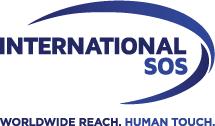Advice regarding the US government geographic travel restriction to North Korea
London
The US government today announced a ban on travel to, through and in North Korea for its citizens. This follows the preliminary announcement on 21 July and will come into effect on 1 September 2017.
Yoshiro Fukuma, Regional Security Director at International SOS, commented: “The US government’s announcement reinforces our advice, which has been in place since the end of April, that organisations – including NGO’s, schools and universities – as well as individual travellers, stop all travel to North Korea. Foreign nationals have previously been detained and then used as bargaining chips at times of heightened tension with the international community or individual foreign governments. Escalating tensions on the Korean Peninsula since April mean that foreign nationals are at an increased risk of being detained by the North Korean government.”
“Once the ban is in effect, US passports holders found to be in violation will be prosecuted under federal law. While dual nationals using their second passport as well as those with special validation from the State Department to travel for humanitarian purposes may still travel to North Korea, International SOS reminds travellers that once in the country there are limited means of communication outside the country, and extremely limited avenues of recourse should foreign visitors encounter legal or other problems. Moreover, visitors are subject to significant government scrutiny, including monitoring of all communications and conversations.”
“Based on the precedent of previous geographic travel restrictions1, we anticipate that the ban is likely to remain in place for the foreseeable future. Although other countries have not yet announced a similar ban on travel to North Korea, International SOS continues to monitor for such developments; those with staff regularly travelling to the country should make contingency plans in case other countries implement similar restrictions.”
Advice from International SOS:
- Defer all travel to North Korea
- US nationals intending to travel to North Korea should seek special permission from the State Department; exceptions to the travel ban will be considered on a case-by-case basis with approval limited to humanitarian purposes.
- There are extremely limited legal and diplomatic avenues of recourse for foreigners in the event of any dispute or detention by the authorities.
- Travellers to North Korea face considerable logistical challenges including surrendering passports on arrival, limited means of communication and minimal diplomatic representation in the country.
- Organisations with non-US national travelling to North Korea should prepare for the impact of similar travel bans being implemented by other countries.
For the latest information and advice, members are advised to register for email alerts and review the travel security update on Travel Security Online and through the International SOS Membership Portal.
The International SOS Assistance App can be downloaded here. For additional information and advice, members are advised to call their local International SOS Assistance Centre.
ENDS
About International SOS and Control Risks
Our alliance brings together two of the world’s leading medical and security specialists, International SOS and Control Risks. Our combined resources and expertise are well placed to meet the customers’ growing need for integrated travel security risk services. Our solutions ensure that mobile employees are safe and productive and help employers with their duty of care obligations. 50 dedicated experts, located across the globe with access to over 200 dedicated travel security experts through 26 regional Assistance Centres and a partner network of over 700 accredited providers, produce global travel security information and analysis 24/7. We also provide travel security training, preventative travel assessment, support with the development of travel security risk policies, evacuation plans and the latest technology to enable clients to track and communicate with their mobile employees.
Notes to Editors
1 Cuba (1963-1977), Iran (1980-1981), Lebanon (1987-1997), Iraq (1991-2003), Libya (1981-2004)


